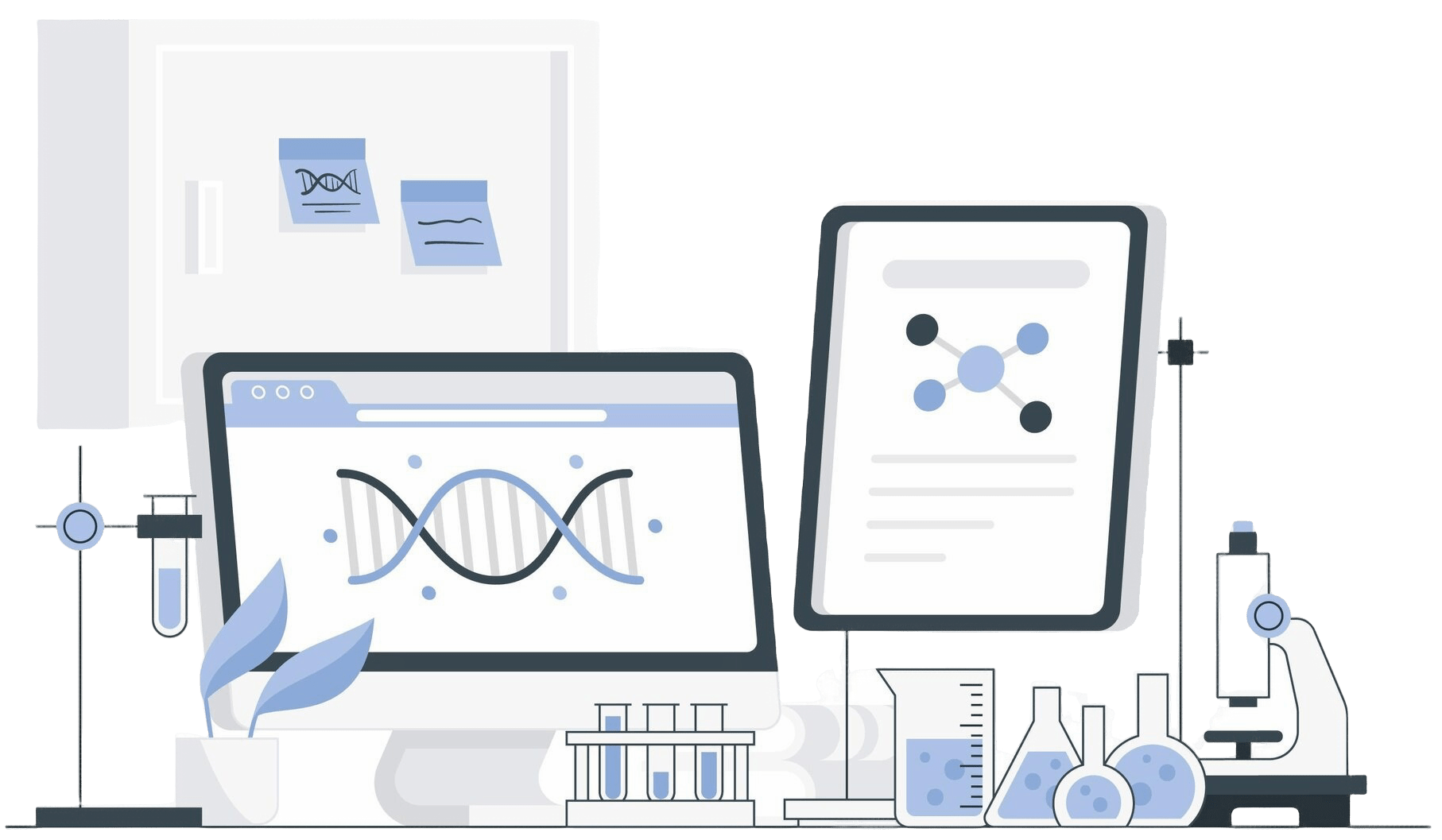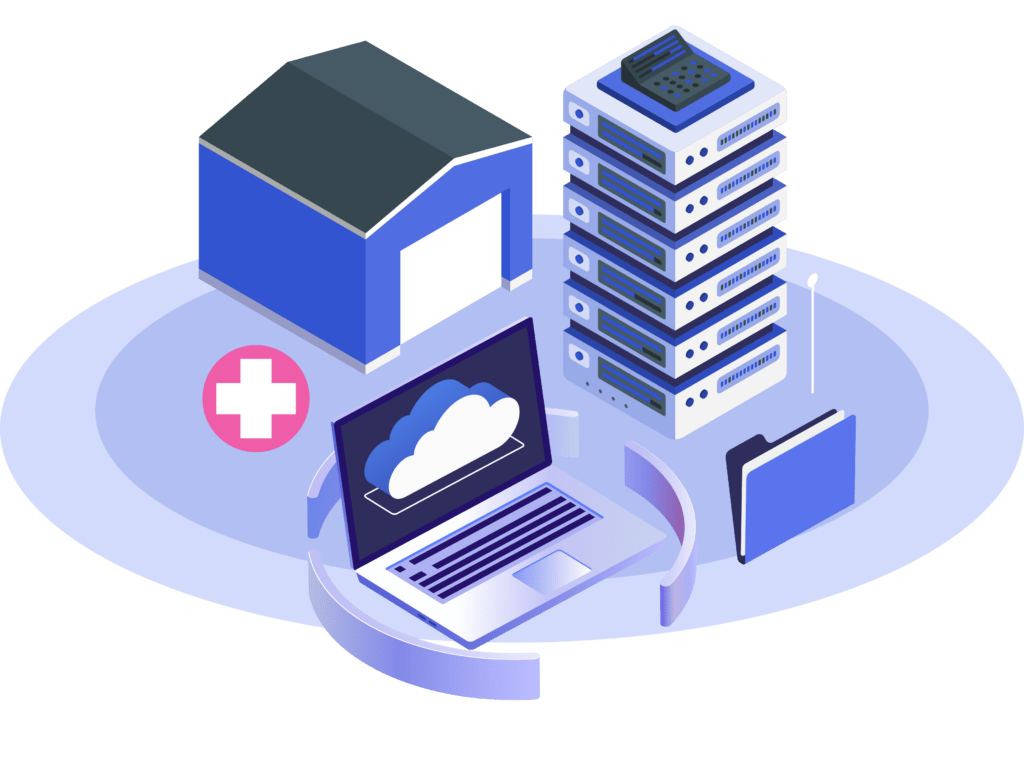
[Integration]LIS Integration Development
Healthcare Integrations develops Laboratory Information System (LIS) integrations, including LIS-to-LIS and LIS-to-EHR connections, to exchange orders, results, billing, demographics, and more using HL7 and FHIR standards. We also create laboratory instrument integrations to seamlessly connect lab instruments with LIS platforms.
How We Can Help
Laboratories generate most of the data used by providers to make medical decisions and develop treatment plans for patients, so it’s no surprise that seamless data exchange is critical for the highest-quality laboratories. From exchanging electronic test orders and results with providers to billing and reimbursement exchange with payors, laboratories must integrate with a variety of systems internally and externally to succeed and grow.
Healthcare Integrations was founded on building integrations with laboratories, integrating laboratory information systems (LIS) with EHRs, billing platforms, and laboratory instrumentation to achieve interoperability and eliminate manual data entry processes. Today, we build LIS integrations to support all workflows within the laboratory, from order intake and accessioning to infectious disease reporting.
What YOU get
- Project documentationOnce the project is completed, you will receive all the necessary documentation to maintain, extend, and update the product.
- Integration-readyUsers value the integration between services that handle different tasks.
- Extra business valueWe design our application to be easily integrable, ensuring that it can seamlessly connect with other services, helping you gain additional market share.
- Intellectual PropertyAll code we develop for you is your exclusive property. You retain full ownership and rights, ensuring complete control over your project.
- Post-launch supportAs per the agreement, we will provide a bug-fixing and support period after the project is completed.
- Complete transparencyEach of our projects is divided into milestones, allowing you to monitor the progress step by step.
- Data protectionWe provide our customers with top-tier data protection.
- White Label ServicesWe offer seamless white-label solutions that integrate directly with your brand. Our team operates under your company name, using your email addresses and branded communication, allowing our services to appear as an extension of your business. Whether you need us as your “Company X Integration Team” or in another capacity, we help you strengthen client relationships while maintaining brand consistency and transparency. Let us handle the work while you take the credit!
Key LIS Integration Services
Need assistance integrating your LIS with another system? Contract with us to build your LIS integration. We’ll provide you with the experience and resources to build any LIS integration.
Need long-term LIS Integration Services? We’ll provide all of the resources needed to support hundreds of integrations by becoming an extension of your integration team. We’ll shoulder the burden of building and managing integrations, saving you time and resources.
We’ll host your integrations for you for a low monthly fee. Our hosting service comes with daily backups, 24/7 security, HIPAA compliance, and complimentary EHR integration monitoring.
When timely, accurate data exchange is a necessity, we provide 24/7, HIPAA-compliant integration monitoring tools to trigger a rapid responses to errors or unexpected downtime. When something goes wrong, our team is there in minutes, not days.
Not sure how your organization should approach LIS integrations? We can help you build an LIS integration strategy tailored to your use cases, clients, goals, and budget.
Have all of the resources you need, but want some expert LIS integration guidance? Our consultants can answer any questions you may have about LIS integrations.
Laboratories often need to integrate analytical instruments with their LIS platform to automate workflows and achieve operational efficiency.
We commonly build integrations with lab instruments made by the following companies:
- Abbott Laboratories
- Agilent Technologies
- BD (Becton, Dickinson and Company)
- Beckman Coulter (a Danaher company)
- Bio-Rad Laboratories
- bioMérieux
- Cepheid (a Danaher company)
- Hologic
- Horiba Medical
- Illumina
- Instrumentation Laboratory (Werfen)
- Mindray
- Ortho Clinical Diagnostics
- PerkinElmer
- Qiagen
- Randox Laboratories
- Roche Diagnostics
- Siemens Healthineers
- Sysmex Corporation
- Thermo Fisher Scientific
We can support integrations with any lab instrument that supports HL7 or ASTM standards for data exchange. Please note that some instruments only support results-only unidirectional data exchange.
Laboratories often need to integrate their LIS with their clients’ EHRs to exchange Orders, Results, Demographics, and Billing data. These integrations are typically based on HL7v2 standards, but we can support other data exchange mechanisms as required by the EHR or LIS platforms involved.
Laboratories are required to report certain infectious diseases as set by public health departments at the local, state, and national levels. We help build the necessary integrations for labs to remain compliant and support public health initiatives.
Revenue Cycle Management (RCM) is a key component of many medical laboratory operations and extremely important to the financial health of a laboratory. Robust integration between a lab’s LIS and RCM software is key to automating these workflows. These integrations will help the lab maintain regulatory compliance, reduce claim denials, and optimize financial performance.
[Why choose us]Here are 4 reasons why you should choose us
- ExperiencedOur team has successfully addressed hundreds of healthcare interoperability challenges.
- Security FirstOur team adheres to industry-standard best practices in cybersecurity and HIPAA compliance.
- Exceptional ServiceOur US-based team delivers fast, comprehensive interoperability services that enhance your offerings.
- 24/7/365 AvailabilityWe understand that healthcare is a round-the-clock responsibility, which is why we provide 24/7/365 support for your mission-critical integrations.

[FAQ]LIS Integration Service FAQs
Our 4-step process involves scoping, developing, validating, and monitoring your integrations.
We can integrate your LIS system with any other healthcare data system, with the most common requests including:
- Electronic Health Records (EHR) systems
- Laboratory instruments and analyzers
- Billing and revenue cycle management systems
- Regulatory reporting systems for public health data
- Patient portals and physician order entry systems
The timeline for an LIS integration project depends on the use case, which LIS system you use, and which other systems you need to integrate with. Simple to moderate complexity integrations typically less than 4-6 weeks, but more complicated integrations can take 6+ months.
We commonly build integrations that enable the exchange patient demographics, lab orders, lab results, and billing data. The data that can be exchanged between systems is dependent on the capabilities of both your platform and the system you want to integrate with.
We can support LIS Integrations using any data format, but most commonly use HL7v2., FHIR R4, and X12 EDI for most integration use cases. We build LIS integrations based on the intended use case, selecting the best data format standard for the job.
Our team has used the following data formats to build LIS integrations:
- HL7 v2
- FHIR (HL7 v4)
- CSV
- JSON
- XML
- ASTM
- DICOM
- Embedded PDFs
- TXT
Our team has used the following connectivity methods to build EHR Integrations:
- SFTP
- FTPS
- VPN
- Fax
- AWS S3
- REST API
- SOAP API
- SMTP
We build the data mapping and transformation processes inside of the integration engine, also known as the interoperability layer. The interoperability layer sits between your platform, and all of the other systems that you need to integrate with. This interop layer handles all of the data mapping, data transformation, and data routing logic, kept separate from your laboratory information system to ensure maximum compatibility.
Yes, we offer post-integration support, monitoring, and maintenance services to ensure that your LIS integration remains functional, secure, and up-to-date with any changes stemming from your LIS or connected system.
Our LIS integration solutions are designed to be scalable, so they can grow with your laboratory. Whether you are adding new clients or instruments, or switching LIS platforms, we ensure that your integration framework can handle any changes.
Common challenges include differences between integration specifications and production environments, lack of communication or support from other vendors, and varying EHR implementations between clients using the same EHR platform. Our team has extensive experience in overcoming these challenges by leveraging our integration validation process, minimizing the reliance on other vendors, and designing LIS integrations to be configurable to achieve data exchange with custom EHR implementations that vary by organization.
We perform rigorous testing during the development and validation process to ensure that the data is accurate and transferred without errors. We also offer also real-time LIS integration monitoring to maintain data integrity for the lifetime of the integration.

